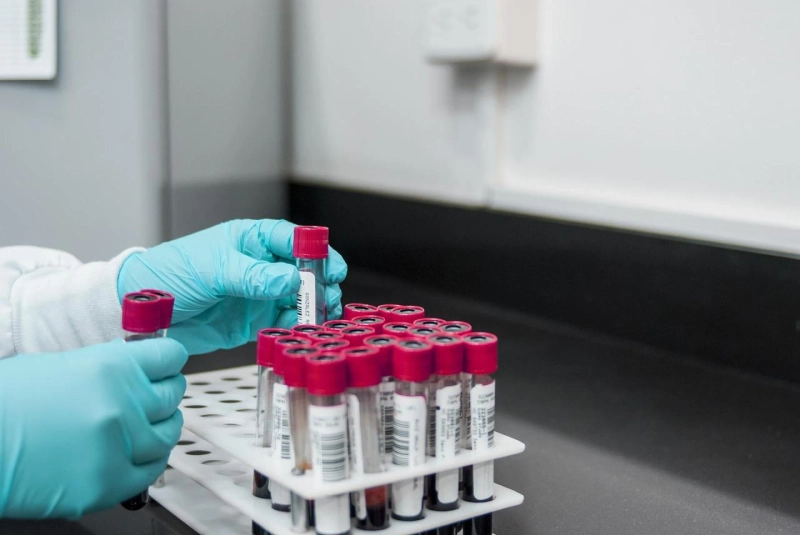Loving plants and caring about the environment are all good and dreamy until you face the major shortcomings of a vegan diet. Going vegan can be termed simply as an “animal-free holiday," where you’re expected to abstain from using or consuming any such products that come from animal sources.rrCertain nutrients are more difficult to obtain on a vegan diet. As a result, frequent blood tests are essential for tracking your vitamin levels. Vegans can acquire nutritional shortages over months, if not years. However, symptoms by themselves do not necessarily reveal what you are weak in. Many symptoms do not appear till late in the process. That is why it is critical to take a blood test every now and then to monitor your numbers.rrThis article lists down some relevant blood tests which will help you detect potential deficiencies and change your diet accordingly.r
Lipid Profile Test
rA lipid profile checks your cardiovascular health and gives an idea of possible risk factors for your heart. Irrespective of following a particular diet, getting a lipid profile test is a smart choice since one never knows when the blood cholesterol level will shoot up. This especially holds true for people over 40.rrA
lipid profile test measures the total cholesterol and triglycerides in the blood. High levels show great risk, since the accumulation of cholesterol in the arteries may lead to a heart attack. Being vegan reduces the risk of coronary diseases. but, our body needs some level of cholesterol to function properly. So getting the test done will give you a clear idea.rrA lipid profile test should be done once every 3 to 5 years. If you fall into the high cardiovascular risk category, your healthcare provider might suggest you get tested more frequently.r
CBC Test
rOne of the most well-known and important vegan blood tests is the complete blood count. It delivers a complete study and count of your body's white and red blood cells.rrFurthermore, the
CBC test can identify diseases such as leukemia. It can help detect anemia in people who eat a plant-based diet and are frequently iron deficient, as
suggested by some studies.rrOne can eat and drink freely before the test if the blood sample is simply being checked for a full blood count. When you're generally healthy and don't have any signs or symptoms of sickness, readings slightly beyond the standard parameters on a complete blood count may well not be a reason to panic, and no further testing may be required.r
HbA1c Test
rAlthough a vegan diet is safe and less likely to cause diabetes, it’s best to stay safe. A hemoglobin A1c test checks for diabetes or prediabetic conditions in adults. The quantity of blood sugar bound to hemoglobin is measured. High HbA1c levels usually indicate diabetes. And the results should be taken seriously because diabetes might lead to various diseases such as kidney problems, damage to the eyes, etc. Some common symptoms to notice are increased thirst, tiredness, frequent urination, etc.rrOne should get tested every couple of years, more frequently if in the prediabetes stage. Blood would be drawn out, generally from the arm, and no as such side effects would follow.r
TSH Test
rThe pituitary gland produces the thyroid-stimulating hormone. It is in charge of activating the thyroid gland to generate two hormones that are necessary for improving metabolism in all tissues of your body.rrA vegan diet is often deficient in iodine. And the vegan iodine sources we get are untrustworthy. This indicates that vegans are more likely to have an underactive thyroid. Also known as hypothyroidism. Iodine levels cannot be determined with a blood test. However, you can undergo a TSH (thyroid stimulating hormone) blood test. TSH levels that are too high are the first indicator of an underactive thyroid. This might be related to an iodine deficit, making TSH a useful indicator of iodine levels.r
Thyroid Function Test
rThyroid function checks are blood tests that assist in determining how well your thyroid gland is working. They are primarily used to identify both an underactive thyroid gland (hypothyroidism) as well as an overactive thyroid gland (hyperthyroidism) (hyperthyroidism).rrThyroxine (T4) plus thyroid-stimulating hormone (TSH) are two hormones that act together and are normally in equilibrium. In a healthy individual, the brain creates just enough TSH to sustain the thyroid gland's functioning. The thyroid gland subsequently generates the precise amount of thyroxine required.rrBlood is drawn from the arm generally and sent to a laboratory for analysis. Unless you have to undergo other tests, fasting isn’t necessary before a thyroid function test. You might experience some discomfort after drawing out the blood, but that should subside after a while. Usually, it’s standard to get tested once a year, however, in the case of a malfunctioning thyroid gland, the number might change.rrIt’s high time to make health your priority. If you plan on getting tested, better consult a doctor first. A DNA test is a great option if you want to understand your nutritional requirements in depth. This will give you the information needed to pursue a healthy life.


